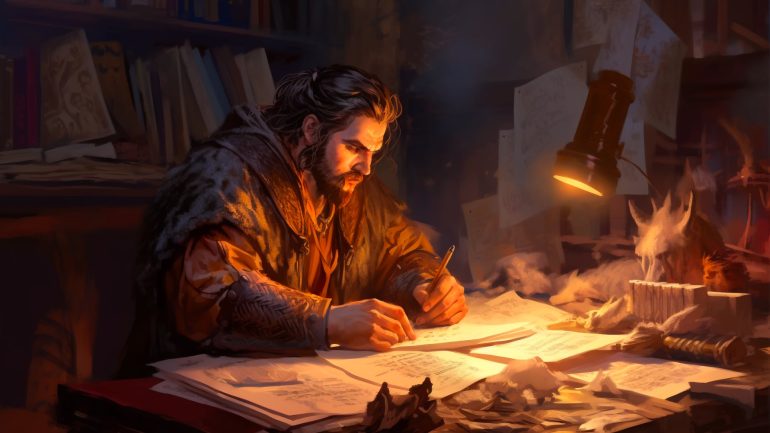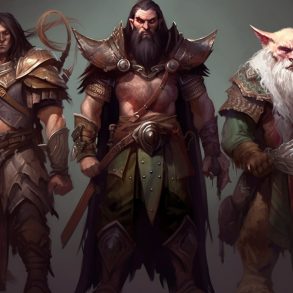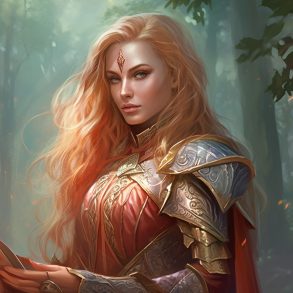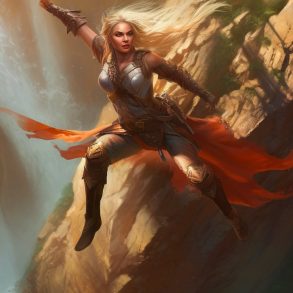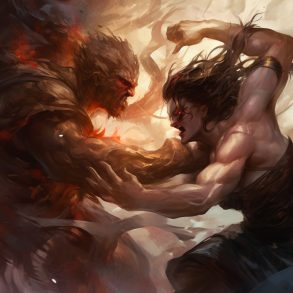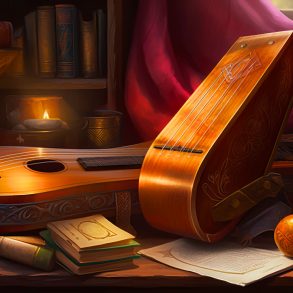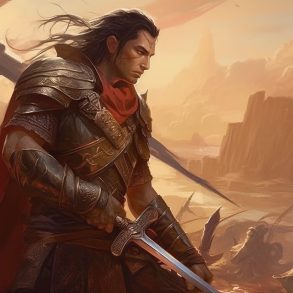So you want to write a DnD campaign, but you’re not sure how exactly to do it. Well, that’s what I’m going to help with, so buckle in and grab your favorite note-taking medium because this is going to be a journey and a half!
Decide on a Theme
Before you begin writing, you need an idea for the campaign: The central theme that echoes throughout the campaign, or at least an adventure to start with. But you need to make sure it’s a specific theme. So instead of: “I want to write a space campaign!” (yes, you can make a space campaign for DnD 5E, though you may want quite a bit of homebrew for it), you should say something more like: “I want to write a space campaign where the party chases pirates around the galaxy with ray guns and shooting the occasional zombie in the head while trying to destroy a massive weapon!”
As you can see, these two ideas are the same, but one sounds much more fun. The reason being is that there’s a purpose behind the carnage and a reason to keep going. Everybody loves having excuses to blow stuff up, and that’s what the second option provides. The theme here is “Incredible heroes chase the bad guys.” In that campaign style, you want the party to feel unstoppable, so you may wish to use mechanics that are more geared towards getting stuff done and less on tending to needs. However, you might want Gritty Realism that makes your party wonder if they’re going to die at any moment. Some possible themes include Discovery, Gritty Realism, Good Samaritan, Protectors, Powergame (very strong PCs), Exploration, Negotiation, Meat Grinder (Constant Peril), Politics, and Investigation, to name a few.
Homebrew or Module?
Once you have your theme, you will want to check with your players if you have any. You may want to ask them all what they do and don’t want in the campaign. After that, you can decide if you wish to make your own campaign or run a module. Modules are already put together for you, which is excellent if you don’t have a lot of time, but still want to run a campaign. However, you will probably want to homebrew a few things for the said campaign to make it your own. But if you use a module, your campaign is practically already written, and all you need to do is put things together to run it. However, if you make your own campaign, there’s still a lot of work to be done.
Homebrew Inspiration and Prep
You will need to start by figuring out what at least the first adventure should be based upon; the ideas in this article accomplish this step well and are good baselines for your first campaign. However, if those ideas don’t tickle your fancy or you want to do something different, don’t be afraid to look at your favorite games, movies, and books for inspiration. Even music, ambiance, and images can inspire ideas for your campaign! Just make sure you keep those as inspiration and not try to copy The Lord of the Rings or Wanda Vision word-for-word. You can use some other ideas based on your favorite mechanic, class, race, or even just some fantastic Forgotten Realms lore you just stumbled across. To summarize this step, you are trying to find one main thing for your players to do which serves as an obstacle to something they want until finished. Skip this step, and the campaign will likely not go as well as you might hope.
After you found something for the party to focus on, you might want to think of one or two things they could do to prepare for that task, such as: finding food, taking a stand against the oncoming hordes, obtaining equipment, delving into a dungeon, getting a couple of basic lessons, and so on. You don’t want to shut down these capabilities, or you will Railroad your party, which you should not be doing. However, you do want the main objective to be outstanding throughout this process, eventually resolving itself if the players get too distracted, causing many more problems immediately and down the line.
DM Tip: Railroading (concerning this article) is the process of forcing the party to go on an adventure to the point where they don’t even get a choice in whether they go or not. You do not want to force the party down a path they do not want to travel. If you need the party to do something, give them a choice, lay down a few stakes, or even use their personality traits or backstory as motivation, reminding them of those if they still ignore said personality or backstory. But don’t be afraid to let your players explore the world and do some random tasks instead of what you have planned as long as they all agree on it being a good idea.
Back on track, once you have some side-quests (which is what those little extra tasks are), you want some plot hooks which as stated previously during railroading, can be based on the characters, or they can also be tied into the major issue at hand, promising the needed preparation the party wants to do. They can also initiate some character development or establish some connections. Promising the party some incredible reward, such as a common magic item, usually works if other hooks fail.
Notes Are Key
Make a few notes once you have the hook, main quest, and possible side quests down. These notes should include key NPCs, any required location-based information (such as contents for the dungeon’s rooms), and other things that will make things easier. Just don’t write too much or stick too close to your notes or module, as that can make the game more like a video game where your choices don’t matter that much. Your players will always find something you didn’t plan for, so stick with basic notes, and be ready to improvise, preferably with some books on hand if you need them on a whim.
Maps and Miscellany
After that, you need any necessary maps, locations, and other miscellaneous things you like having ready, and you’re good to run that part of the campaign. Then once you finish running that part, write the next part, taking into account what has already happened and what could lead to. You don’t need a Big Bad Evil Guy (BBEG) with a real face or name until late in the game when your party is ready to take on significant tasks. You need problems for your party to solve, and things for them to do.
Phew! That’s a lot! Especially to take in over a single sitting. But if you take your time, and go over again if you need to, then the only thing you need to do is actually start the campaign, which is another issue altogether. Just remember that DnD is meant to be fun, and nothing should stop you or your players from enjoying the time you spend together. Not even trying to be realistic. Good luck with that super incredible campaign idea I’m sure you now have!
